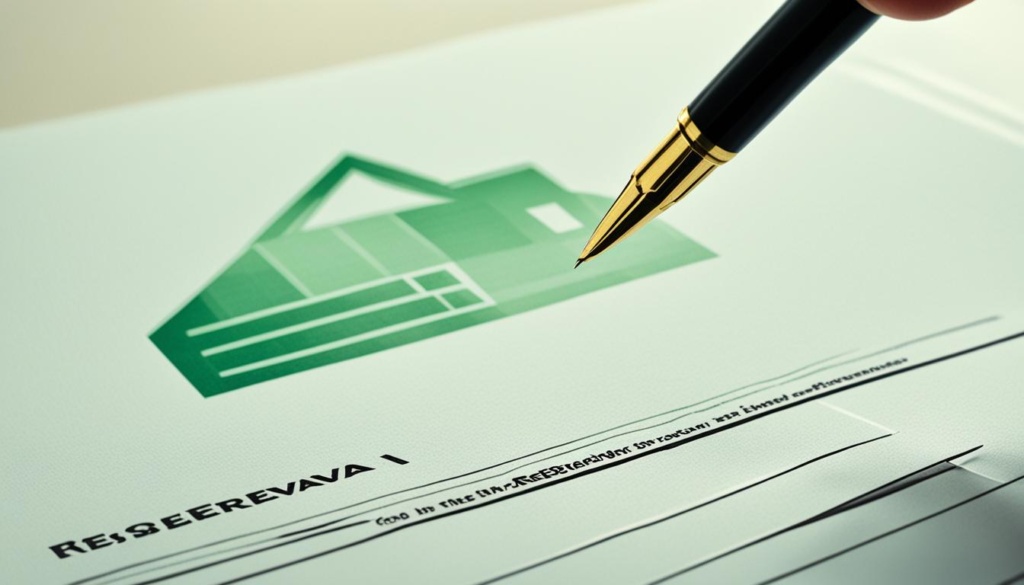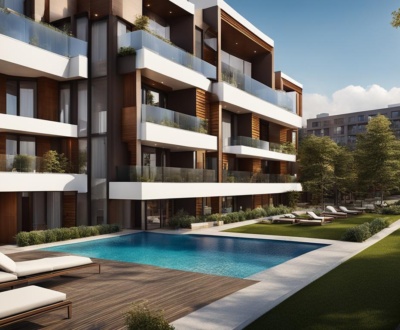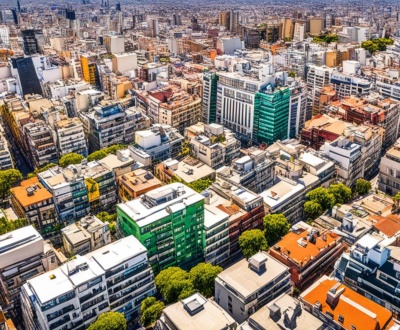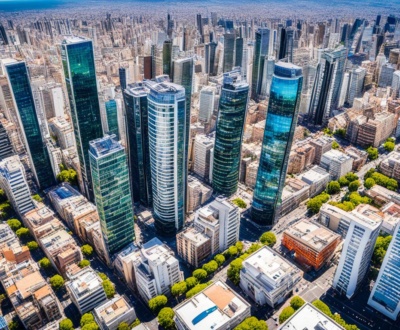Argentina is an attractive destination for foreigners looking to invest in real estate. However, navigating the country’s real estate laws and regulations is crucial for an effective process. In this comprehensive guide, we will explore the property laws, real estate regulations, and legal requirements for real estate in Argentina.
Argentina Real Estate Law governs various aspects of property ownership and transactions in the country. It includes laws related to property rights, land acquisition by foreigners, residency requirements, and more.
Whether you are considering buying property in Argentina or want to understand the legal framework that governs real estate transactions, this guide will provide valuable insights to help you make informed decisions.
Can Foreigners Buy Property in Argentina?
Foreigners are welcome to buy and own property in Argentina, enjoying the same rights as Argentine citizens. The Argentine Constitution grants foreigners property ownership rights, but there are certain restrictions and legal requirements to consider.
- Land Ownership Restrictions: Ley N° 26737 establishes restrictions on land acquisition by foreigners in Argentina. These restrictions aim to protect national interests and prevent excessive foreign ownership of agricultural land.
- CDI (Clave de Identificación): Foreigners looking to buy property in Argentina must obtain a CDI, which is equivalent to a tax identification number. The CDI is a prerequisite for acquiring property as a non-resident.
- Benefiting the Local Community: Foreign buyers must demonstrate that their property purchase benefits the local community. This may include employing local workers and using local materials for construction.
- Rural Land Ownership: There are additional restrictions on foreigners purchasing rural land in Argentina. These restrictions include limitations on land located near important water sources and land within border security zones.
Overall, while foreigners are allowed to buy and own property in Argentina, it’s important to comply with the country’s laws and regulations. Understanding the land ownership restrictions, obtaining a CDI, and ensuring that the purchase benefits the local community are essential steps for a successful property acquisition.
“Foreigners are welcome to invest in Argentina’s real estate market, contributing to the country’s economic growth. However, it’s crucial to respect the legal requirements and adhere to the spirit of Argentine law.”
| Pros of Property Ownership for Foreigners in Argentina | Cons of Property Ownership for Foreigners in Argentina |
|---|---|
| Economic investment in Argentina | Restrictions on the acquisition of rural land |
| Equal property ownership rights as Argentine citizens | Requirement to demonstrate the benefit to the local community |
| Potential for long-term property value appreciation | Restrictions on land near important water sources |
| Diversification of investment portfolios | Restrictions on land in border security zones |
Buying Land as a Foreigner in Argentina
Buying rural land in Argentina as a foreigner is subject to certain rules and restrictions outlined in ley 26.737. This law aims to protect rural land in the country.
Foreigners are not permitted to buy land with significant water sources or land near important water sources. There are also limits on the amount of rural land that foreigners can own, both nationally and within each province.
However, there are exceptions for individuals who have lived in Argentina for a certain period of time or have Argentine children. Before purchasing land as a foreigner, a special certificate from the National Rural Land Registry is required.
Exceptions for Land Purchase by Foreigners
While there are restrictions on buying land in Argentina as a foreigner, there are exceptions to these rules.
| Exception | Description |
|---|---|
| Residency Requirement | If a foreigner has lived in Argentina for a certain period of time, they may be eligible to purchase rural land. The specific residency requirement may vary depending on the province. |
| Argentine Children | If a foreigner has children who are Argentine citizens, they may be allowed to purchase rural land in their children’s names. |
It is essential for foreigners interested in buying rural land in Argentina to consult with legal professionals who specialize in real estate to understand the specific requirements and exceptions that apply to their situation.
In summary, while there are restrictions on buying rural land in Argentina as a foreigner, ley 26.737 provides exceptions for individuals who have met certain residency requirements or have Argentine children. It is important for foreigners to familiarize themselves with the law and consult with legal professionals to navigate the process successfully.
Residency and Property Ownership in Argentina
Owning property in Argentina does not automatically grant residency or citizenship. However, foreigners can apply for temporary residency as investors by presenting an investment project to the Dirección Nacional de Migraciones. The investment must be at least 1,500,000 Argentine pesos, and proof of the source and legality of the funds is required. The Ministry of Production reviews the investment project and grants temporary residency if approved. This residency is valid for up to one year and can be renewed for up to three years.
It’s important to note that there is no specific residency program based solely on property ownership.
Residency Requirements in Argentina
To obtain temporary residency as an investor in Argentina, the following requirements must be met:
- Investment project: Present a detailed investment project to the Dirección Nacional de Migraciones.
- Minimum investment: The investment must be at least 1,500,000 Argentine pesos.
- Source of funds: Provide proof of the source and legality of the investment funds.
- Ministry of Production approval: The investment project is reviewed by the Ministry of Production, who grants temporary residency if approved.
- Residency duration: Temporary residency is valid for up to one year and can be renewed for up to three years.
“Owning property in Argentina does not automatically grant residency or citizenship. However, foreigners can apply for temporary residency as investors by presenting an investment project to the Dirección Nacional de Migraciones.” – Ministry of Production
Obtaining temporary residency as an investor in Argentina provides several benefits, including the ability to live and work in the country for an extended period. It also allows investors to further engage in business activities and explore other investment opportunities within Argentina.

| Residency Program | Investment Amount | Duration |
|---|---|---|
| Temporary Residency as an Investor | Minimum of 1,500,000 Argentine pesos | Up to 3 years |
| Permanent Residency | Varies | Indefinite |
| Citizenship | Varies | Indefinite |
Buying vs. Renting Property in Argentina
The decision to buy or rent property in Argentina depends on various factors. It’s important to consider your specific needs, goals, and financial situation before making a decision. Let’s explore the advantages and considerations of both options.
Buying Property in Argentina
If you plan to use the property for at least three months a year or potentially retire in Argentina, buying may be a wise choice. Here are some reasons why:
- Long-term investment: Buying property allows you to build equity and potentially earn a return on your investment over time.
- Stability and control: When you own a property, you have the freedom to renovate and make changes without restrictions.
- Personal use: If you plan to spend a significant amount of time in Argentina, owning a property gives you a home away from home.
However, buying property in Argentina is not without its considerations:
- Financial commitment: Purchasing property involves upfront costs, including the down payment, closing costs, and potentially ongoing expenses such as property taxes and maintenance.
- Reselling challenges: The property market in Argentina can be unpredictable, and reselling property may not always guarantee a quick and profitable sale.
- Economic conditions: It’s important to consider the state of the Argentine economy, as it can affect property prices and market stability.
Renting Property in Argentina
Renting property in Argentina may be more suitable if you’ll use the property less frequently or for shorter durations. Here are some advantages of renting:
- Flexibility: Renting allows you to easily change locations or properties, providing more freedom and flexibility.
- Lower financial commitment: Renting requires a smaller upfront financial commitment compared to buying a property.
- Minimal responsibility: As a tenant, you are not responsible for property maintenance or repairs, reducing your obligations.
However, renting also has its considerations:
- No equity: Renting does not offer the opportunity to build equity or gain potential financial returns.
- Rental market fluctuations: Rental prices in Argentina can vary, and there is a risk of increasing rental rates over time.
- Limited control: As a tenant, you may have restrictions on making modifications or personalizing the property.
Ultimately, the decision between buying and renting property in Argentina depends on your individual circumstances and priorities. It’s important to carefully evaluate the pros and cons, consider your long-term plans, and seek professional advice when necessary.
The Buying Process in Argentina
When it comes to purchasing property in Argentina, there are specific steps and fees involved in the process. To ensure a smooth transaction, it’s important to understand the key aspects of the buying process and the roles of the professionals involved.
Finding an ‘Escribano’
In Argentina, it is a legal requirement to engage the services of an ‘escribano’ (notary public) during property transactions. The ‘escribano’ acts as an intermediary, overseeing the legality, transparency, and proper documentation of the transaction. Their role is vital in ensuring a secure and valid property purchase.
It is recommended to choose an ‘escribano’ with a good reputation and experience in handling property transactions to ensure all legal requirements are met.
The Importance of CDI
Obtaining a CDI (Clave de Identificación) is another essential aspect of the property buying process in Argentina. The CDI serves as a tax identification number required for non-residents to purchase property. It is necessary to have a CDI in order to engage in property transactions and legally own a property in Argentina.
The process of obtaining a CDI involves providing the necessary documentation and a domicile certificate. While the ‘escribano’ can assist with obtaining the CDI, individuals can also apply for it personally.
Finding a Real Estate Agent
Working with a reliable and experienced real estate agent is crucial in navigating the property market in Argentina. A real estate agent can provide valuable insights, help find suitable properties, and negotiate on your behalf.
It is advisable to choose a real estate agent with a strong track record, positive client reviews, and a comprehensive understanding of the local market conditions.
Making an Initial Offer
Once you have found a property of interest, it is customary to make an initial offer, known as ‘reserva’. This offer is accompanied by a deposit, typically around $1,000, to demonstrate your seriousness as a buyer.
The offer is usually valid for a week, giving the seller time to consider and accept the offer. If the offer is accepted, the purchase process moves forward to the signing of a purchase agreement.
Signing a Purchase Agreement and Conducting Inspections
After the initial offer is accepted, the next step is to sign a purchase agreement. This agreement outlines the terms and conditions of the transaction, including the purchase price, payment method, and any contingencies.
It is advisable to hire a professional inspector to conduct a thorough inspection of the property to ensure there are no hidden issues or potential problems. This inspection helps identify any necessary repairs or maintenance that may affect the property’s value or your decision to proceed with the purchase.
Finalizing the Transfer of Ownership
Once all the necessary steps, including inspections and due diligence, have been completed, the final stage involves completing the transfer of ownership. This is typically done through the offices of the ‘escribano’.
During this stage, all parties involved in the transaction, including the buyer, seller, and ‘escribano’, come together to sign the necessary documents and finalize the property transfer.
The property purchase process in Argentina can be complex, but with the guidance of licensed professionals like ‘escribanos’ and real estate agents, it becomes more manageable. By understanding the steps involved and having the right support throughout, you can navigate the process with ease and confidence.
Next, we’ll take a closer look at the current real estate market in Argentina and key factors to consider when making a property investment.
The Real Estate Market in Argentina
The real estate market in Argentina is a dynamic and ever-changing landscape that is influenced by economic conditions, local trends, and various factors. Property prices in Argentina can vary significantly based on the location, property type, and overall economic climate.
Property Prices in Argentina
One of the key considerations for buyers in the Argentine real estate market is property prices. In recent years, property prices in Buenos Aires, the capital city, have been decreasing. This trend presents potential opportunities for buyers looking for affordable properties in a vibrant urban setting.
However, it’s important to note that property prices in Argentina can fluctuate, and they are also influenced by factors such as inflation and currency exchange rates. Sellers may adjust their asking prices accordingly, making it essential for buyers to stay informed and conduct thorough research before making any investment decisions.
Popular Locations to Buy Property in Argentina
Buenos Aires is a perennial favorite among property buyers in Argentina. The city offers a diverse range of neighborhoods, from historic and vibrant areas like Palermo and Recoleta to up-and-coming districts such as Villa Crespo and Barracas.
In addition to Buenos Aires, other regions in Argentina also offer attractive options for property buyers. Patagonia, known for its stunning natural beauty, is a popular choice for those seeking a tranquil escape or looking to invest in tourism-related properties. Mendoza, famous for its vineyards and wine production, attracts buyers interested in vineyard estates and rural properties.
Trends in the Argentine Property Market
The Argentine property market reflects current trends and preferences among buyers. Some notable trends include:
- Flexible Payment Plans: Many developers and sellers now offer flexible payment options to attract buyers. These plans may include extended financing periods or alternative payment structures.
- Green and Sustainable Properties: With an increasing focus on environmental consciousness, there is a growing demand for eco-friendly and sustainable properties in Argentina.
- Investment Opportunities: Argentina’s vibrant real estate market offers numerous investment opportunities. From residential properties with high rental yield potential to commercial properties in key business districts, investors can explore a wide range of options.
Overall, the real estate market in Argentina presents a range of exciting opportunities for buyers and investors alike. From affordable properties in Buenos Aires to picturesque estates in Patagonia, the diverse market caters to various preferences and budgets.
| Property Market | Pros | Cons |
|---|---|---|
| Buenos Aires | – Affordable property prices in certain neighborhoods – Diverse range of amenities and cultural attractions – Vibrant urban lifestyle |
– Fluctuating property prices – High competition for desirable properties – Potential currency exchange risks |
| Patagonia | – Stunning natural beauty – Tranquil and peaceful surroundings – Potential for tourism-related investments |
– Limited availability of properties – Remote locations may pose logistical challenges – Seasonal nature of tourism industry |
| Mendoza | – Renowned vineyards and wine production – Scenic landscapes and pleasant climate – Potential investment in vineyard estates |
– Regional variations in property prices – Relatively smaller market compared to Buenos Aires – Accessibility concerns for international buyers |
Finding an ‘Escribano’ in Argentina
When buying property in Argentina, it is essential to hire an ‘escribano’ (notary public). The role of an ‘escribano’ in property transactions is vital, ensuring legality, transparency, and proper documentation. They play a crucial role in safeguarding your interests throughout the process.
“The ‘escribano’ is like a trusted guide who ensures that you follow the right path during your property purchase journey. They conduct thorough title searches to verify ownership, assess property boundaries, and ensure compliance with Argentine property laws.”
The fees for the services of an ‘escribano’ in Argentina are typically calculated as a percentage of the property’s purchase price, approximately 2% plus VAT. It is important to note that additional charges may arise during the process, so it is advisable to discuss the fee structure with your chosen ‘escribano’ upfront.
Choosing a reputable ‘escribano’ is crucial to ensure a smooth and secure property transaction. Consider seeking recommendations from reliable sources, such as friends, family, or real estate professionals. It’s also wise to check their credentials and verify their membership in the Colegio de Escribanos, the professional association of notaries in Argentina.
With an experienced ‘escribano’ by your side, you can have peace of mind knowing that your property purchase is in safe hands. They will guide you through the legal complexities, helping you navigate the process with confidence and ensuring a successful and hassle-free transaction.
Image:
Obtaining a CDI (Clave de Identificación)
To purchase property in Argentina as a non-resident, obtaining a CDI (Clave de Identificación) is a crucial step. The CDI is a tax ID number that enables individuals to engage in property transactions and is required for property ownership.
The process of obtaining a CDI can be done with the assistance of an ‘escribano’, who acts as an intermediary in property transactions, or individuals can apply for it personally. The following steps outline the process:
- Obtain a domicile certificate: This certificate serves as proof of residency for non-residents and can be obtained from the Registro de las Personas.
- Visit the AFIP office: AFIP (Administración Federal de Ingresos Públicos) is the tax authority in Argentina. Visit the local AFIP office and present the domicile certificate along with other required documents.
- Submit the necessary documents: The AFIP office will require certain documents, such as a valid passport, proof of address, and a completed application form. It is advisable to check the official AFIP website for the specific document requirements.
Once the application is submitted, the AFIP office will process the CDI application. Upon approval, the individual will be issued a CDI number, which is then used for property transactions in Argentina.
It is important to ensure that all documents are accurately completed and submitted as required to avoid any delays or issues in obtaining the CDI. Working with an ‘escribano’ can provide guidance and assistance throughout the process.
Documents Required for CDI Application
| Document | Requirement |
|---|---|
| Valid passport | Original and photocopy |
| Domicile certificate | Original and photocopy |
| Proof of address | Recent utility bill or other official document |
| Completed application form | Obtained from the AFIP office |
By following the necessary steps and providing the required documents, non-residents can obtain a CDI and proceed with property transactions in Argentina.
Finding a Reliable Real Estate Agent in Argentina
Finding a reliable real estate agent in Argentina is crucial for a successful property transaction. Not all agents possess the necessary experience and knowledge, so it’s essential to choose a reputable agent who can guide you through the process effectively.
When searching for a real estate agent in Argentina, consider the following tips:
- Seek recommendations from friends, family, or colleagues who have recently bought or sold property in Argentina. They can provide insights into their experiences and recommend trustworthy agents.
- Research online platforms and websites specialized in real estate to find agents with positive client reviews and high ratings. This can help you gauge their reputation and professionalism.
- Interview potential agents to assess their knowledge of the local market and their understanding of your specific needs and budget.
- Ask for references and contact previous clients to inquire about their satisfaction with the agent’s services.
Once you have shortlisted a few agents, inquire about their commission fees. Realtors in Argentina typically charge a commission fee based on a percentage of the property’s purchase price, plus VAT. The standard commission rate is around 4% of the purchase price.
It’s important to note that agents in Argentina may not always provide advice against overpriced properties, as their commission is tied to the purchase price. Therefore, it’s crucial to conduct thorough market research and independent property evaluations to ensure you’re making an informed decision.
Remember to choose a reliable real estate agent in Argentina who understands your needs and can provide valuable guidance throughout the buying process.
Comparison of Commission Fees for Real Estate Agents in Argentina
| Real Estate Agent | Commission Fee |
|---|---|
| Real Estate Agency A | 4% of the purchase price + VAT |
| Real Estate Agency B | 4.5% of the purchase price + VAT |
| Real Estate Agency C | 3.5% of the purchase price + VAT |
Table: Comparison of Commission Fees for Real Estate Agents in Argentina
Note: Commission fees may vary depending on the specific agreement between the client and the real estate agent.
Making an Initial Offer (Reserva)
Making an initial offer, known as ‘reserva’, is a critical step in the property buying process in Argentina. It allows you to express your interest in a property and secure it before signing a purchase agreement. The ‘reserva’ involves placing a deposit alongside your offer, demonstrating your commitment as a serious buyer.
The amount of the deposit can vary depending on the property, but it is generally around $1,000. For more expensive properties, the deposit amount may be higher. This deposit shows the seller that you are financially capable and ready to proceed with the transaction.
The offer made during the ‘reserva’ phase is typically valid for one week. This timeframe gives both parties enough time to negotiate and finalize the terms of the purchase. If the seller accepts your initial offer, the process moves forward to the next stage—signing a purchase agreement.
Expert Tip: When making your initial offer, it’s crucial to consider factors like the property’s condition, market value, and your budget. Conduct thorough research and consult with a trusted real estate agent to make an informed decision.
The ‘reserva’ deposit is an essential part of the property buying process, as it shows your commitment to the purchase. However, it’s important to note that the validity of the initial offer and the deposit may vary depending on the specific terms outlined in the purchase agreement. Always review the agreement carefully to understand the conditions and timelines associated with your ‘reserva’ deposit.

Why Is the ‘Reserva’ Deposit Important?
The ‘reserva’ deposit serves multiple purposes. Firstly, it demonstrates your seriousness and commitment as a buyer, reassuring the seller that you are dedicated to completing the transaction. Secondly, the deposit acts as a measure of financial capability, indicating that you have the funds available to proceed with the purchase. Lastly, the ‘reserva’ deposit provides security for both parties, ensuring that the property remains off the market during the negotiation process.
The Role of the ‘Escribano’ in the ‘Reserva’ Process
An ‘escribano’ (notary public) plays a crucial role during the ‘reserva’ process. They oversee the legal aspects of the transaction, ensuring that it complies with Argentine property laws. The ‘escribano’ verifies the legitimacy of the deposit, manages the necessary paperwork, and assists with drafting the purchase agreement. Their involvement guarantees the transparency and legality of the entire process.
What Happens If the Initial Offer Is Not Accepted?
If the seller does not accept your initial offer, the ‘reserva’ deposit is typically refunded to you in full. However, it’s important to clarify the terms regarding the refund in the purchase agreement to avoid any potential disputes. In some cases, a portion of the ‘reserva’ deposit may be non-refundable, especially if it is specified in the agreement.
Once your initial offer is accepted, you can move forward with confidence, knowing that the property is secured. The ‘reserva’ deposit marks the beginning of the final stages of the property buying process, leading to the signing of a purchase agreement and ultimately, property ownership.
Pitfalls and Problems in the House Buying Process in Argentina
Buying property in Argentina can be an exciting and rewarding experience. However, it’s essential to be aware of the potential challenges that may arise during the house buying process. One of the main challenges is navigating the legal complexities of property transactions in Argentina. The country has specific laws and regulations that govern real estate transactions, and unfamiliarity with these laws can lead to difficulties and delays. It’s important to work with a qualified professional, such as an attorney or real estate agent, who has expertise in Argentine property law to ensure a smooth process.
Another challenge to consider is the currency exchange in property transactions in Argentina. Fluctuations in the exchange rate can significantly impact the cost of the transaction, especially for those using foreign currency. It’s crucial to stay updated on the exchange rates and carefully plan the timing of your purchase to minimize the potential financial impact.
Verifying the property’s title and ownership is another crucial step to avoid future disputes. It’s important to conduct a thorough title search and ensure that the seller has the legal right to transfer ownership. Working with a trusted ‘escribano’ (notary public) or attorney can help in conducting the necessary due diligence and providing peace of mind.
Additionally, it’s important to be aware of any taxes, fees, and other considerations involved in the house buying process in Argentina. These may include property transfer taxes, registration fees, and legal fees. Understanding these costs upfront and factoring them into your budget can help you avoid any surprises along the way.
More from our blog
See all postsRecent Posts
- Argentina Property Management: Expert Care & Services February 2, 2024
- Understanding Argentina Real Estate Law Essentials February 2, 2024
- Argentina Luxury Apartments: Upscale Living February 1, 2024










